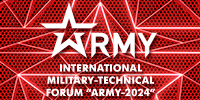John Sullivan, U.S. Ambassador to Russia, has given an interview to Interfax, in which he talks about various issues from the stabilisation of energy markets, prospects in arms control dialogue, to the commemoration of the 75 victory in WWI, Space cooperation, and more. Here follows a part of this interview.
-The 75th anniversary of Victory in WWII will be celebrated soon. How do U.S. authorities treat this anniversary and the cooperation between our two countries in the anti-Hitler coalition during the war? And one additional question, how important is the joint statement which was released recently by Trump and Putin on Elbe Day in spring 1945?
Well, the end of World War II in Europe and the defeat of Nazism and fascism that it represents are important events in the United States that can never be forgotten. And I know how important it is to the Russian people, to the Russian government, that that victory also be acknowledged. Which is why the joint statement fr om President Trump and President Putin clearly underlined the fact that Nazi Germany and the other Axis powers were not defeated by one country, but by many nations coming together with a common goal.
So, I think that statement was an important one, signifying that the people of the United States, of the Soviet Union, the Russian people, and of so many countries around the world, suffered great losses in this war. And as we mark this somber anniversary, it’s important that we remember that joint sacrifice. We also remember that the Second World War continued for another four months, and of course the recovery efforts after the war lasted for many years thereafter.
I am, in particular, and I know the United States' people are proud that we supported the heroic sacrifices and struggles of the people of Russia and other countries in the Soviet Uni on through our Lend-Lease Program, and through our own sacrifices on many wartime battlefields, not only in Europe but also in Africa, Asia, the Pacific islands and at sea.
As we work together to defeat common enemies, in particular in this 75th anniversary this month in defeating Nazi Germany, it's a proud historic moment and I am honored to be a part of it as the President’s Ambassador here in Moscow.
- U.S. National Security Advisor Robert O'Brien was expected to attend the celebrations in Moscow. Regretfully, the parade has been cancelled because of the pandemic. Is there an understanding regarding new dates for his visit or any other possible ways of contact with the Russian side?
Well, first it is important to notice, as I did through a statement at the time the decision was announced, that we fully support the Russian government's decision to reschedule the commemorations fr om May 9. It is my understanding that a specific date for such commemorations has not been set. But we in the United States Government are looking forward to a time when we will be able to join together safely to celebrate properly.
I would expect that, just as we were planning for a high-level delegation for May 9, once international travel is possible and a rescheduled date has been set, I would expect a similar level delegation would come for in-person engagement with our Russian counterparts to celebrate the end of the war.
-The possibility of holding a 'nuclear five' summit, which was proposed by President Putin in Jerusalem, has been widely discussed. Is it possible that such a summit could be held in a videoconference format or in any other format in the coming months or perhaps before the end of the year?
Well, we recently delivered a message to President Putin from President Trump agreeing that a P5 meeting was a good idea. It’s my understanding that the substance and logistics of such a meeting are under consideration.
More broadly, we've seen how important it is for the P5 members to work together to tackle some of the biggest challenges to international security. P5 members have found common ground on important issues, from promoting non-proliferation regimes to supporting the resolution of regional and internal conflicts and countering the scourge of international terrorism.
Russia undoubtedly has an important responsibility as a P5 state, though as we've seen in Syria, Russia has too often fueled instability - for example by continuing to support the brutal Assad regime, contributing to the horrible humanitarian and refugee situation in Syria and beyond.
But that doesn’t remove the need for us to continue to work with Russia as both P5 members and as major nuclear powers. In addition, as Russia and China expand their strategic capabilities, we need to work together to achieve effective, modern, multilateral arms control and risk reduction. And this is certainly President Trump's vision, and one of his highest national security priorities.
-Has the dialogue on strategic stability and arms control been frozen due to the pandemic or both sides still have consultations? The United States insists on engaging China in such consultations. Russia proposes engaging France and the United Kingdom. What is Washington's attitude toward this idea?
Well, on the broader issue, Secretary Pompeo and Foreign Minister Lavrov spoke some weeks ago to discuss, among other things, arms control including New START. And I believe they’ve had a subsequent phone conversation since that one, it’s probably a month ago.
The United States, as you note, has been quite clear that our priority is to think more broadly than New START - to acknowledge that New START is important, but to think more broadly. And you've heard President Trump say that it is his desire to include both China and Russia in our next steps in pursuing arms control.
We stand ready to engage with both Russia and China on negotiations for an agreement that meets our criteria of advancing U.S., allied, and partner security, is verifiable and enforceable, and includes partners that comply responsibly with their obligations.
We are continuing to review the possibility of an extension of the New START treaty, taking into account the threats we face today which are different than the threats we faced ten years ago. It’s simply a recognition of the fact that it is a changed security environment over the last decade. We also acknowledge Russia's statement that it has no preconditions to the extension.
We don't have meetings to announce at this time, but my expectation - based on the conversations between Secretary Pompeo and Foreign Minister Lavrov - is that there will be dialogue between the United States and Russia soon on the New START treaty and arms control. We are slowed somewhat due to the Covid-19 situation, but my expectation is that we will engage with Russia at least virtually, and we will also continue to engage Russia in the New START treaty's bilateral consultative commission, and other diplomatic channels to work cooperatively to address both technical questions and issues related to the ongoing implementation of New START, and related issues.
-What about the Russian proposal engaging France and the United Kingdom in the future START talks?
Well, we've discussed this. I have in particular in my prior capacity as Deputy Secretary [of State], and I noted, in connection with President Putin's P5 proposal, that there was an opportunity for all five countries to engage in arms control discussion, and I think that that may be an appropriate topic to include in a P5 discussion. Of course, that needs to be worked out with the P5 members as we address the agenda, but that is one opportunity to include France and the United Kingdom.
We certainly want to discuss all issues related to arms control, not simply New START. New START is important but it’s not the only issue on the agenda.
Our interest in dialogue and pursuing discussions on arms control was reinforced by the recent announcement that my friend and colleague Marshall Billingslea has been appointed as the Special Presidential Envoy for Arms Control. I've spoked to Marshall and I know that he is eager to engage with Russian counterparts on these issues, as well as reaching out to the Chinese to extend, to expand our discussions multilaterally as we’ve just been discussing.
I expect, in light of Secretary Pompeo and Foreign Minister Lavrov's conversations and Marshall's appointment, that there will be movement and additional discussion soon on arms control.
-Space has recently been one of the few positive examples of interaction between Washington and Moscow. But the situation is changing. How will growing competition on the space services market impact cooperation between Roscosmos and American aerospace corporations? Wh ere do you see potential conflicts of interests and wh ere do you see opportunities for growth?
my colleagues at NASA – I've met with the Administrator of NASA, Administrator Bridenstine, and several other colleagues at NASA who are working very hard on these current challenges and opportunities. I would have to point to our continued positive cooperation as a signal for the future. But my NASA colleagues are better placed to discuss the most recent, current issues involved in our space relationship.
I can speak more broadly about how, over time, our relationship with Russia on space issues has been extremely important. In fact, as we speak, U.S. astronaut Chris Cassidy is aboard the International Space Station with two Russian cosmonauts, Anatoly Ivanishin and Ivan Vagner. All three of them traveled to the International Space Station on a Soyuz rocket last month. And that could not have happened without the decades of cooperation that preceded it. It's just one in a long, long line of successful collaborative efforts between the United States and Russia in space.
In fact, we have had a human being in space every single day for the past 20 years. The International Space Station has been continuously occupied since November 2, 2000. We could not have accomplished that without great cooperation between the United States and Russia. And I know my colleagues at NASA are working hard with their colleagues at Roscosmos to continue that cooperation.
For the full interview : Interfax








